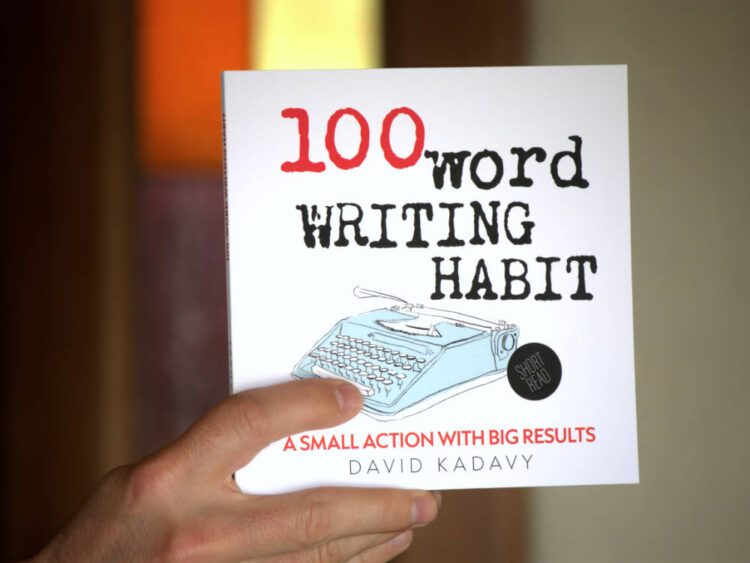House-Cleaning: Change your RSS feed for kadavy.net
If you’re reading this in an email, I messed up and I’m sorry.
If you’re reading this in an RSS reader, this message is for you. keep on reading »

David Kadavy is author of Mind Management, Not Time Management, The Heart to Start & Design for Hackers.
If you’re reading this in an email, I messed up and I’m sorry.
If you’re reading this in an RSS reader, this message is for you. keep on reading »
 Here’s a bonus preview of a new podcast I’ve brewed just for Patreon supporters. It’s Coffee w/ Kadavy. In this episode, #4, I talk about: keep on reading »
Here’s a bonus preview of a new podcast I’ve brewed just for Patreon supporters. It’s Coffee w/ Kadavy. In this episode, #4, I talk about: keep on reading »
 After some initial speed-bumps in keeping it in-stock, the 100-Word Writing Habit book is now available! keep on reading »
After some initial speed-bumps in keeping it in-stock, the 100-Word Writing Habit book is now available! keep on reading »
TL;DR: Mind Management, Not Time Management is only $1.99 today. Buy it on Amazon Kindle or Apple Books.
This is the moment we’ve been waiting for. If you’ve been reading my income reports, you know I’ve been planning to one day offer my latest book, Mind Management, Not Time Management, for only $1.99.
BookBub has finally selected MMT for their exclusive Featured Deal, and will be sending it to a million people tomorrow. Nine months after releasing the book, this is the real “launch.” It has a shot at hitting the Wall Street Journal best-seller list.
It’s a great deal, so buy the book on Amazon.com or anywhere else. If you’d also like to help me shoot my shot at the WSJ list, here’s how you can help:
keep on reading »
 I believe we are deep in “The Age of Maybe“. Chances are, you have hundreds of Facebook friends, and thus many social engagements that you are invited to through Facebook, evite, or Meetup. With social connections so much looser than they once were, it makes RSVPing Maybe to these things very easy to do. You want to see who else will be going. You want to see if something better will be going on that day. You probably won’t admit that these are the reasons why, but at any rate, you RSVP Maybe. keep on reading »
I believe we are deep in “The Age of Maybe“. Chances are, you have hundreds of Facebook friends, and thus many social engagements that you are invited to through Facebook, evite, or Meetup. With social connections so much looser than they once were, it makes RSVPing Maybe to these things very easy to do. You want to see who else will be going. You want to see if something better will be going on that day. You probably won’t admit that these are the reasons why, but at any rate, you RSVP Maybe. keep on reading »
I just read an article with a pretty intriguing proposal in it. If I understand it correctly, Luke Redpath proposes that the next CSS specification include an ability to specify that an element contain other elements by default. This would be an ideal way to create visual effects that would otherwise require extraneous DIV tags. For example, for the technique, Onion Skinned Drop Shadows, the code would look something like this:
.wrap1, .wrap2, .wrap3 {
display:inline-table;
/* \*/display:block;/**/
}
.wrap3 {
padding:0 4px 4px 0;
background:url(corner_tr.gif) right
top no-repeat;
}
/* CSS rules from the future */
.wrap1 {
contain: .wrap2
float:left;
background:url(shadow.gif) right
bottom no-repeat;
}
.wrap2 {
contain: .wrap3
background:url(corner_bl.gif) left
bottom no-repeat;
}
img .shadow {
contain: .wrap1
}
/* end CSS rules from the future */ Now, instead of your markup looking like this:
<div class="wrap1"> <div class="wrap2"> <div class="wrap3"> <img src="object.gif" alt="The object casting a shadow" /> </div> </div> </div>
It would look like this:
<img class="shadow" src="object.gif" alt="The object casting a shadow" />
I think this would be a big step toward separating presentation from content.